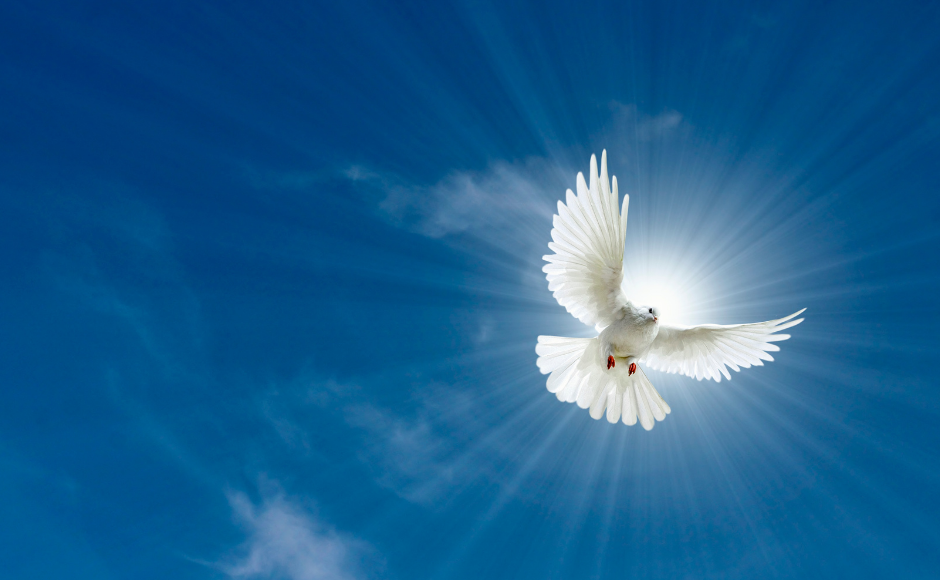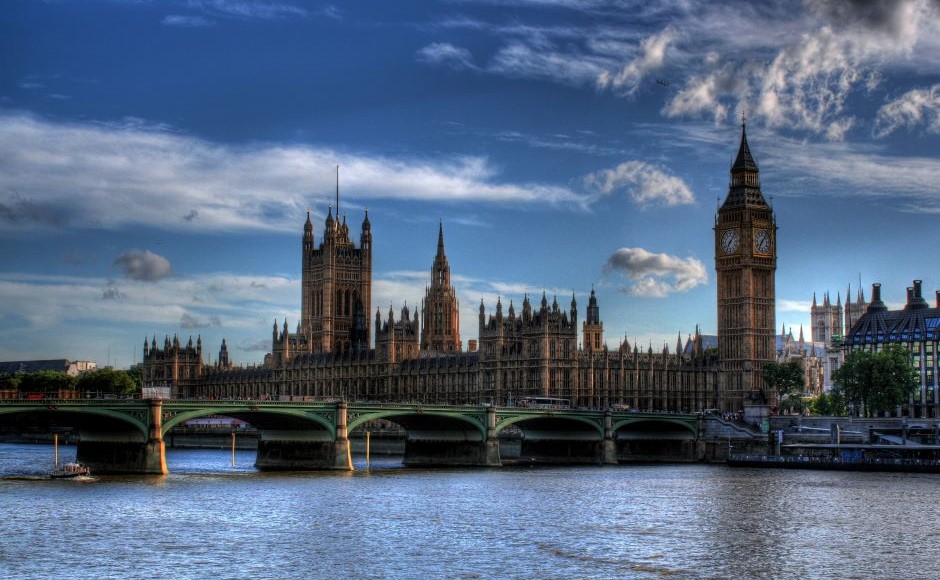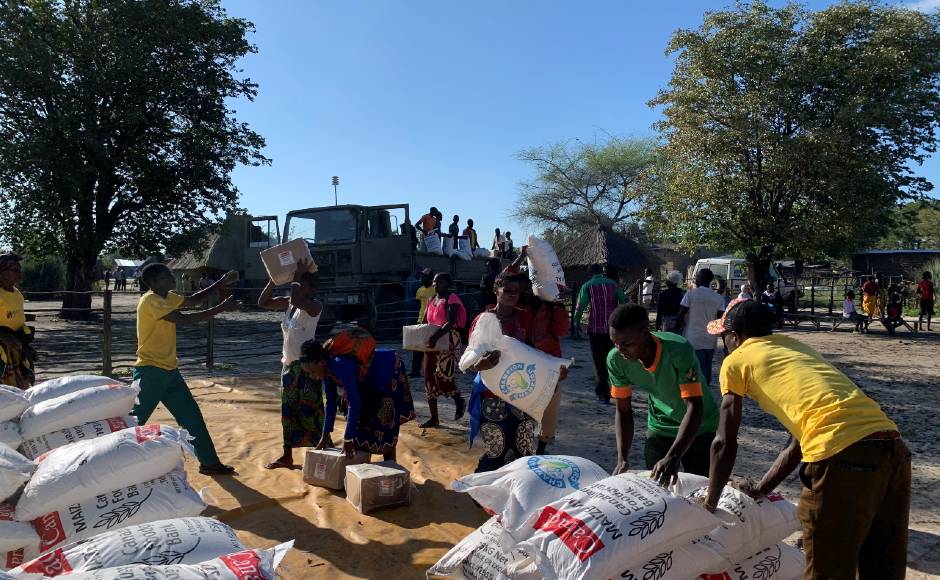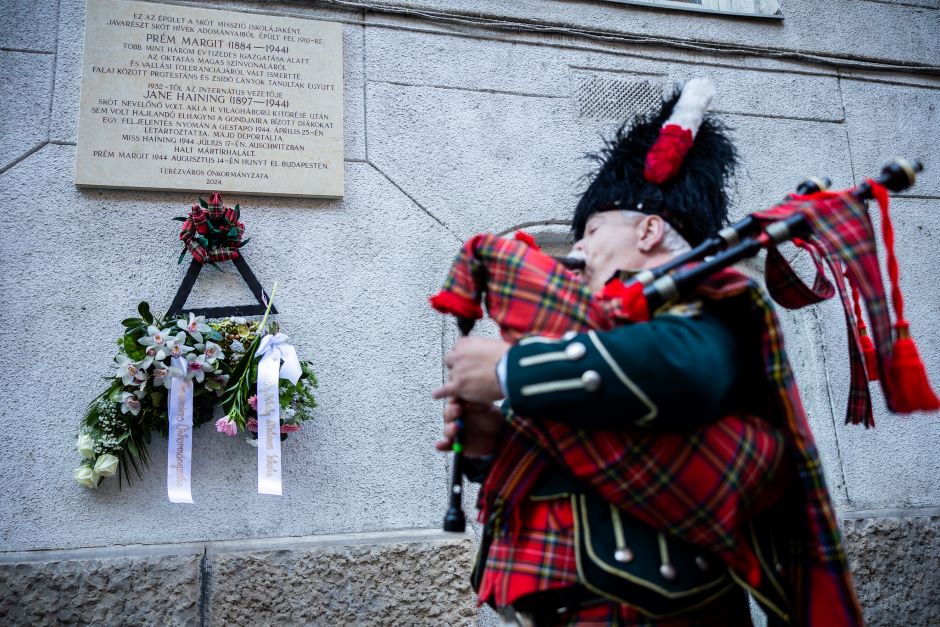Church joins disarmament campaigners in celebrating nuclear weapons treaty
Published on 22 January 2021
The Church of Scotland is celebrating the moment today – 22 January 2021 – when the new international Treaty on the Prohibition of Nuclear Weapons comes into force. This is the culmination of global efforts led by ICAN, the International Campaign for the Abolition of Nuclear Weapons, which was awarded the Nobel Peace Prize in 2017 for its work towards the treaty.

Rt Rev Dr Martin Fair, Moderator of the General Assembly of the Church of Scotland, has said:
"I've never been more sure about anything than that the possession of nuclear weapons is morally wrong. Nearly 40 years on, I'm proud to be Moderator of the General Assembly of a Church that has consistently taken that view.
"At times, as we seek great changes - dismantling apartheid, tackling global poverty - we can become disheartened and start to think that we'll never make any difference, that we're ‘whistling in the wind.' The signing of this treaty into international law is a significant moment in this journey and should be all the encouragement we need to continue the work to eventually see total elimination."
This evening (Friday 22 January), Dr Fair will be speaking at an online vigil organised by Pax Christi Scotland, which runs from 7-8pm on Zoom.
The Church of Scotland has also contributed to a UK faith leaders' video marking the coming into force of the Treaty. Very Rev Dr Susan Brown, Convener of the Faith Impact Forum, is featured. Within the video an interfaith statement is shared:
"As people of faith, we share a belief that human life is precious and that the world around us is priceless. Nuclear weapons threaten to destroy the lives and planet which our faiths celebrate.
"We welcome the arrival of the Treaty on the Prohibition of Nuclear Weapons which will allow us and future generations to enjoy a more peaceful world.
"We call on the UK Government to pursue constructive dialogue with the many governments who support this treaty, and to strive for a just and genuine peace."
This statement has been endorsed by:
- Very Rev Dr Susan Brown, Convener of the Faith Impact Forum, Church of Scotland
- Most Rev Father Olu Abiola OBE, Council of African & Caribbean Churches UK
- Rabbi Jeff Berger
- Most Rev and Rt Hon Stephen Cottrell, Archbishop of York and Primate of England
- Revd Claire Downing, Moderator of the General Assembly of the United Reformed Church
- Revd Dr Paul Goodliff, General Secretary, Churches Together in England
- Revd Lynn Green, General Secretary, Baptist Union of Great Britain
- Robert Harrap, General Director of Soka Gakkai International UK
- Rashidat Adeyinka Hassan, Assistant Secretary General, Muslim Council of Britain
- Harun Khan, Secretary General, Muslim Council of Britain
- Carolyn Lawrence, Vice-President of the Methodist Conference
- Jimmy Madon, Zoroastrian Parsi Priest
- Most Rev Malcolm McMahon, Archbishop of Liverpool and President of Pax Christi England and Wales
- Ibrahim Mogra, Former Assistant Secretary General of the Muslim Council of Britain
- Ravinder Nijjar, Sikhs in Scotland & GNNSJ
- Paul Parker, Recording Clerk, Quakers in Britain
- Phoebe Parkin, Youth President of the Methodist Conference
- Trupti Patel, President of the Hindu Forum in Britain
- Peter Pay, Moderator of the General Assembly of the United Reformed Church
- Param Pujya Dr Samani Pratibha Pragya, Jain Faith
- Ven Bogoda Seelawimala, Chief Sangha Nayaka of Great Britain
- Dr Maureen Sier, Director, Interfaith Scotland
- Bhai Sahib Mohinder Singh, Guru Nanak Nishkam Sewak Jatha
- Most Rev Mark Strange, Primus and Bishop of Moray, Ross and Caithness, Scottish Episcopal Church
- Rev Richard Teal, President of the Methodist Conference
- Rabbi Jonathan Wittenberg, Senior Rabbi to Masorti Judaism & President CCJ
- Rabbi Alexandra Wright, Liberal Judaism
What is the Treaty on the Prohibition of Nuclear Weapons?
The treaty prohibits nations from developing, testing, producing, manufacturing, transferring, possessing, stockpiling, using or threatening to use nuclear weapons, or allowing nuclear weapons to be stationed on their territory.
It also prohibits them from assisting, encouraging or inducing anyone to engage in any of these activities.
It puts nuclear weapons in the same category as other weapons of mass destruction like chemical or biological weapons, as well as land mines and cluster munitions.
The Church of Scotland's General Assembly has supported unilateral nuclear disarmament by the United Kingdom since the 1980s and has given its support to the Treaty on the Prohibition of Nuclear Weapons.
The UK Government has refused to take part in conversations around the treaty, and so the UK is not covered by its provisions. Church members are invited to write to their MPs to urge the UK Government to begin a dialogue with other countries to deliver on the promises of disarmament and in support of bilateral relations and the cause of peace.
You can find out more about the Nuclear Ban Treaty by reading the Joint Public Issues Team's briefing.


